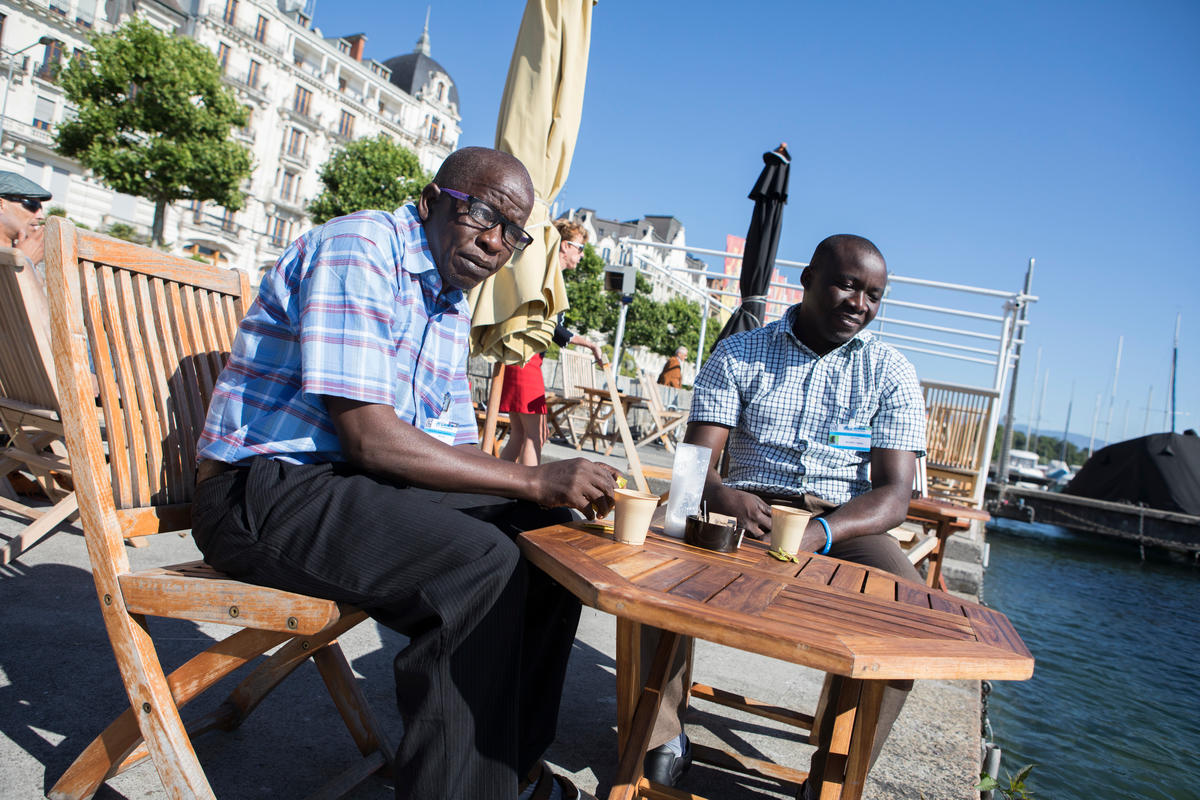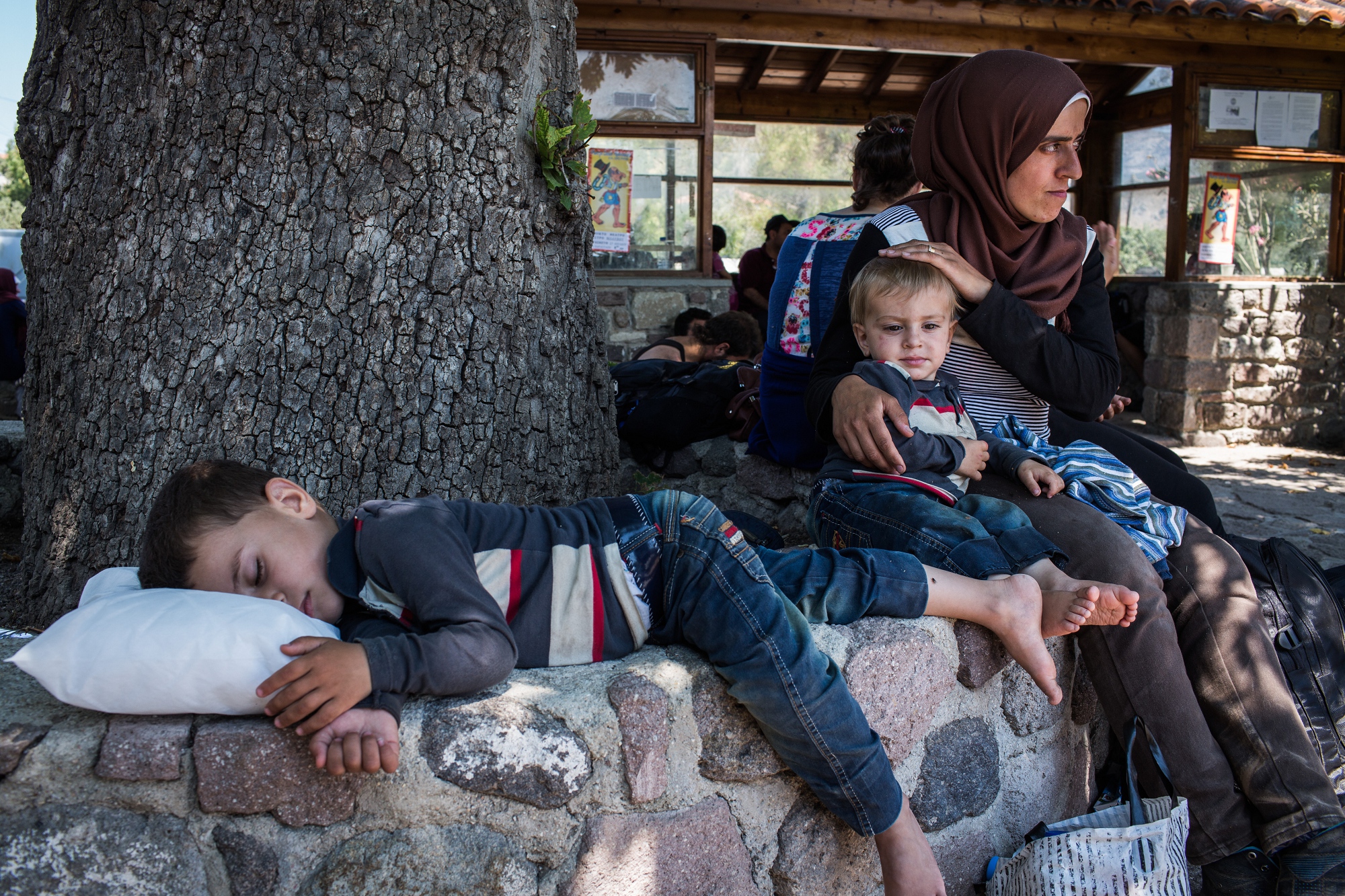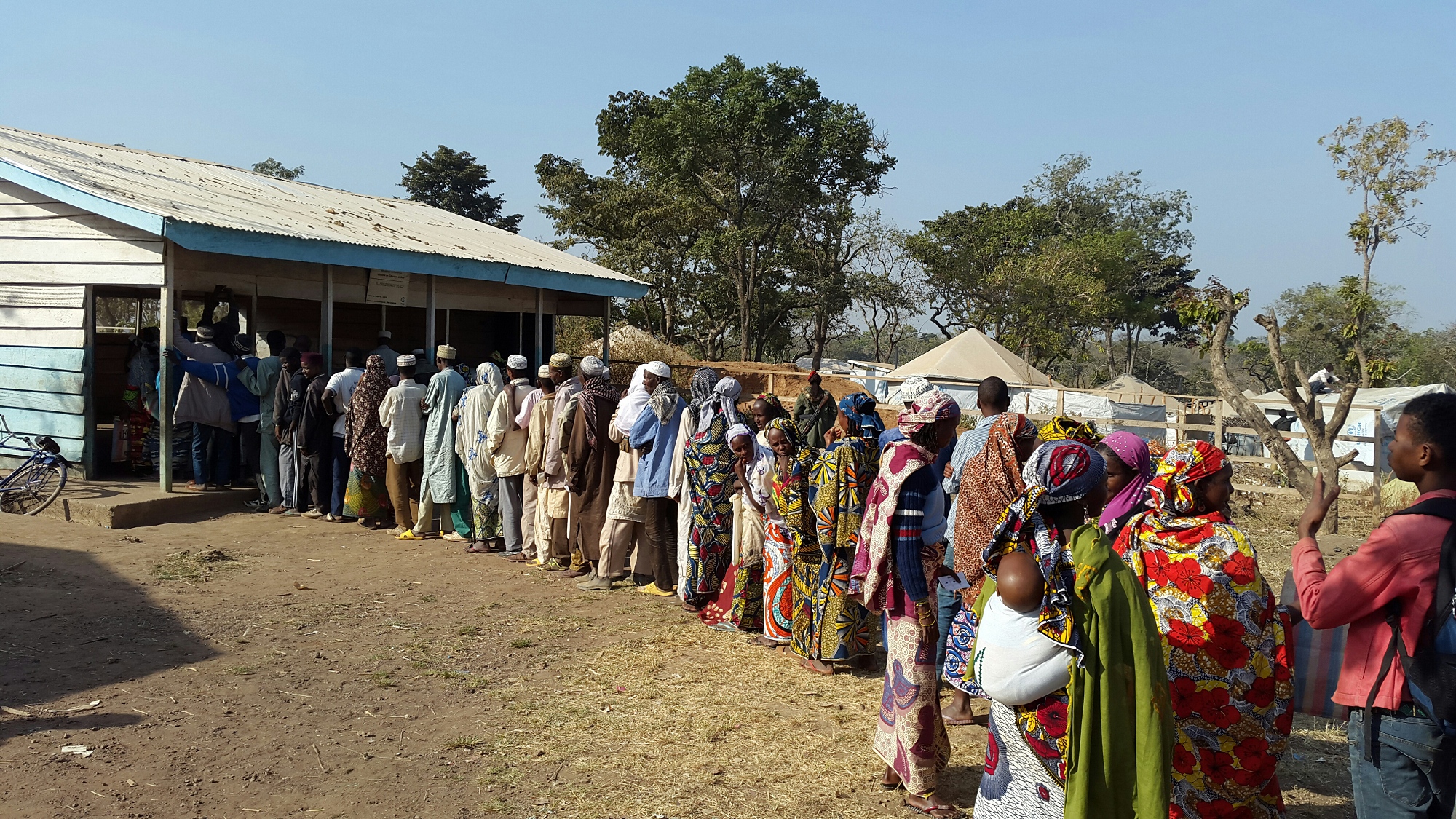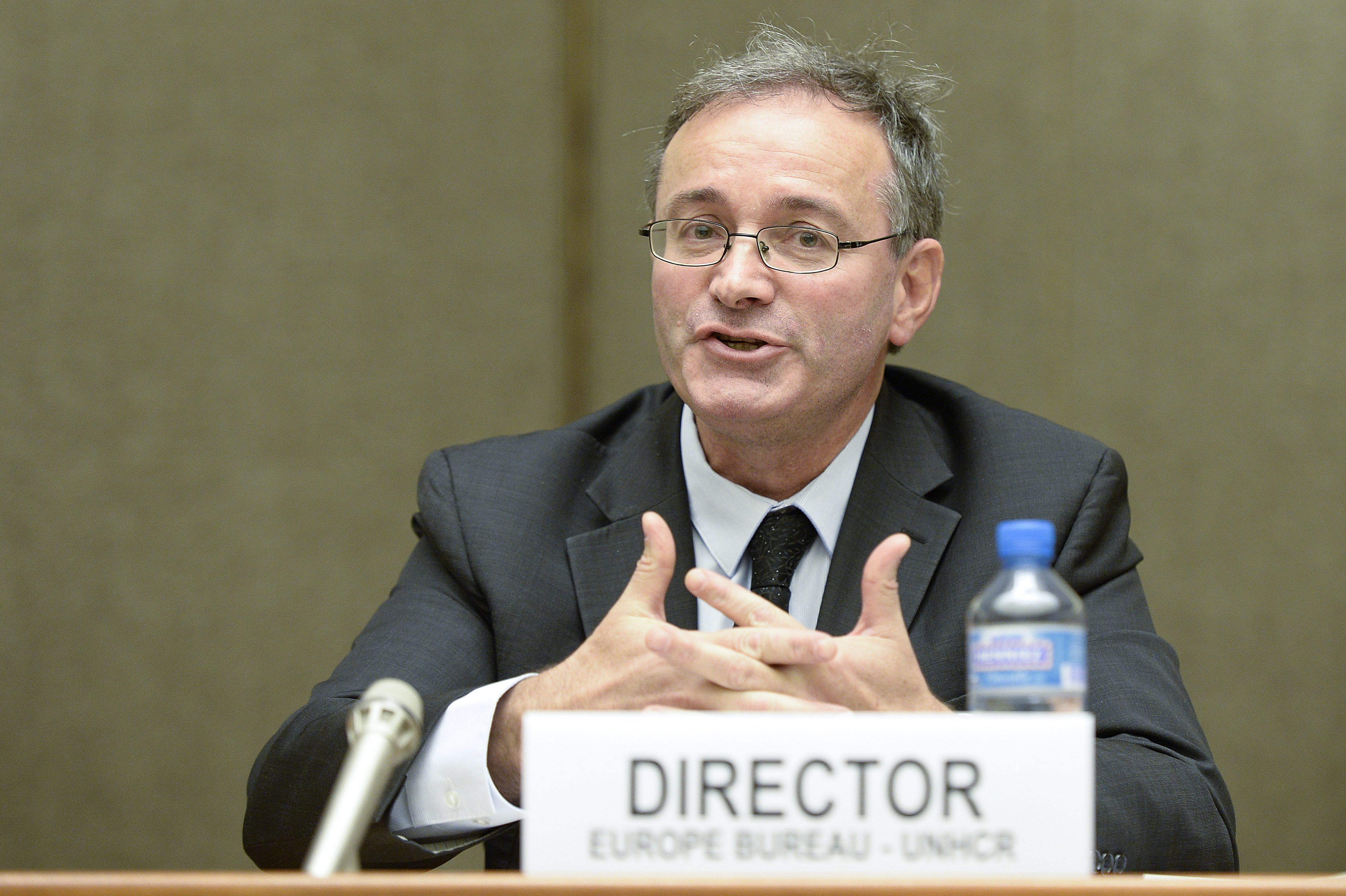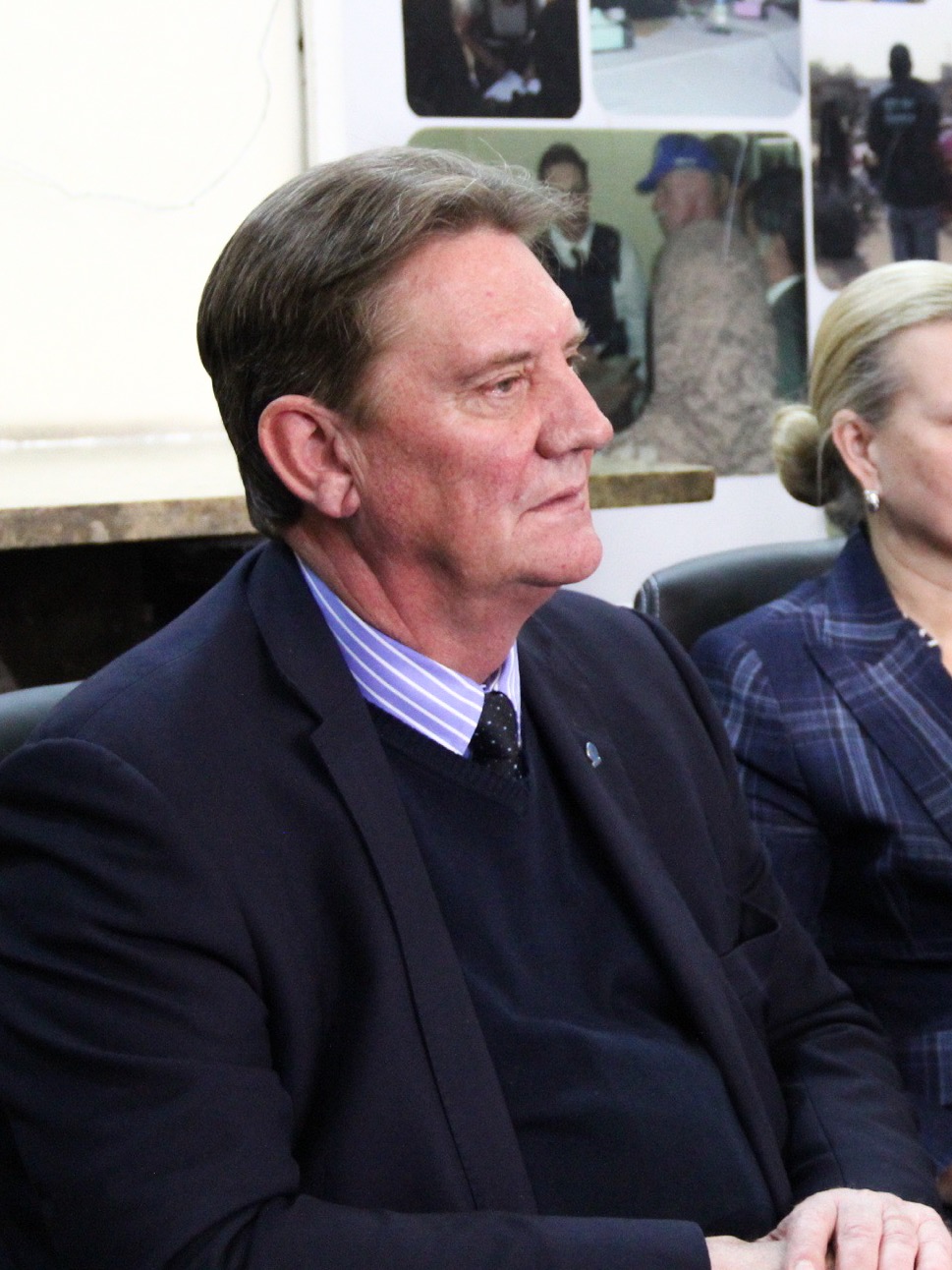Q&A: Refugee poet helps the resettled in US, but still worries about Congo
Q&A: Refugee poet helps the resettled in US, but still worries about Congo

WASHINGTON, D.C., United States, October 10 (UNHCR) - Former Congolese refugee Fidel Nshombo fled from South Kivu province in Democratic Republic of the Congo when the civil war came to his hometown of Bukavu in 1999. Separated from his family and only in his teens, Nshombo spent the next seven years wandering around Africa, spending time in Zambia, Zimbabwe, Botswana and South Africa before being resettled with UNHCR help in 2006 to Boise, Idaho, in the United States. Last year, the charismatic 27-year-old, a published author of two books of poetry about refugees and war crimes against women, became one of the 60 founding members of the Refugee Congress, which was set up last year to help refugees advocate on their own behalf. Nshombo was nominated by his fellow Congress members to represent the north-west states as one of seven refugees or former refugees on an advisory board, which met recently for the first time. A human rights advocate for much of his life, Nshombo is committed to helping make a difference in the lives of refugees. But he worries about the situation in eastern Democratic Republic of the Congo (DRC), where fighting in North Kivu province together with generalized violence and rights abuses has forced more than 450,000 people to flee their homes since April this year. Some 60,000 of them have sought shelter in neighbouring Rwanda and Uganda, where Nshombo's parents and several siblings now live. Nshombo, who became a US citizen last year, recently discussed his life and work with UNHCR intern, Trevor Alford. Excerpts from the interview:
Tell us about your life in the Democratic Republic of the Congo
My family used to do a lot together. We're Roman Catholic and we went to church every day. Because us children went to school, we had to go to the early morning services. After school, before we went to bed, we would pray together. I had eight siblings. It was a big family. Everything was good at that time.
So what changed?
In 1994, the genocide in Rwanda affected my home town [in DRC's South Kivu province]. Just two years after the genocide started, my family had to flee because war broke out in my country [leading to Rwanda's incursion into eastern DRC in 1996, the ouster of President Mobuto Sésé Seko in 1997, the resumption of conflict in 1998 and a fragile peace accord in 2003]. In 1998, we were separated for good. When I came home from school one day, bullets were flying everywhere and nobody was there.
What happened next?
There was no time to think. I did not decide to leave; I was forced out. For a year, I lived on the streets of Bukavu. I had no shelter and I didn't know where my parents were. Then the war broke out again and I had to run. I escaped with four other street kids. [Nshombo and his young companions managed to reach Zimbabwe, travelling by boat and on foot and hitch-hiking through Zambia]. We became separated in the forest somewhere in Zimbabwe.
It was a big transition for me. I had led a very normal life back home [Nshombo's father ran two photo studios in Bukavu, the capital of South Kivu] and then I found myself in a country where I didn't know the language and where I did not have any support. I did not have anyone to feed or clothe me. I was young, so that was a shock. I spent the first year just crying all the time. The conditions were very poor compared to what I was used to.
As a teenager, I found myself advocating for a group of 73 refugees, because by then I could write and read in English. Then, I was thrown in jail with all the people I was advocating for. After almost a year, I escaped with two women and I managed to reach Botswana, where I found myself in a new refugee camp [in late 2001].
How did you end up in Boise, Idaho?
I spent a number of years trying to find a place where I would feel comfortable and be safe. I crossed back into Zimbabwe and was arrested again. I didn't want to tell the police my identity. Finally, the United Nations arranged for me to be released and started working to get my documents from the Zimbabwean authorities. Finally, UNHCR got me out.
What challenges did you face in the United States? Was it tough?
Unfortunately, I came to a part of America where there is little racial diversity and I found myself as the only black man walking around. So everybody would stare and ask questions, and you didn't know if they were going to laugh at you or learn about you. When I started to work as a security guard, I had problems because there were people who didn't want to work with me. But these are the same problems that affect every other country I've been in, so I had to fight that the same way.
Tell us about the Refugee Congress and why you decided to join.
For the past five years, I've been advocating for refugees [in the United States] and this was not that different. When you are a passionate advocate, people look to you for help. For me, the Refugee Congress was a wake-up call. I had advocated for refugees at the local level; after the Refugee Congress, I found myself at the national level, which is where I want to be. I want to work with people who make decisions affecting refugees' lives. I hope this will stay a part of UNHCR and be replicated in other countries.
Today, I make most of my living through my writing and public speaking, but I also do some work as an interpreter and a night auditor . . . My books are all about refugees. I am on book number three and I have done a couple of documentaries ¬- all of these are to help people understand.
What do you think when you read about the situation in eastern Congo?
The conditions are terrible and it seems nobody cares about what is happening there. Armed groups across the DRC [Democratic Republic of the Congo] are breaking into villages, killing people and raping women. But, it's not a major war where the whole country is on fire. These small groups just leap out of the bushes and attack. It's terrible. We need to raise awareness. If the country gets more attention internationally, news of the situation might reach people who can fight the problem, or can find a way to fix it. But the problem is that the DRC has been put on the backburner internationally.
Did you ever manage to reunite with your family?
In 2008, my friends in the International Committee of the Red Cross [ICRC] found my younger brother and sister in Uganda, and then I started talking with them over the phone. A year later, they traced my mother and father and another four siblings. They were in Rwanda and I sent some money to help them move to Uganda. We've since located two more siblings and only one member of my immediate family is still missing. Two years ago, I travelled to Uganda for a family reunion. I am looking for a way to have them with me.
Would you ever go back to the Congo?
I'd return if I had the chance to go and help improve the situation there, but as an American and not a Congolese.

